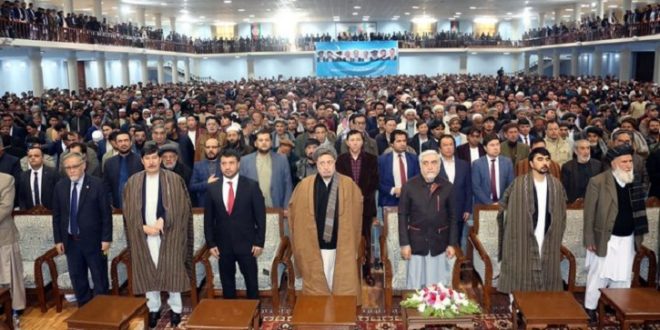The much-awaited preliminary results from the presidential ballot have been finally announced, nearly three months after the Election Day. The long delay in announcing the election result had not only disheartened the Afghan masses but had also affected many spheres of life. People had lost faith in the Independent Election Commission (IEC) but the result announcement restored their trust in the electoral body to some extent. Based on the results, President Ashraf Ghani has won the September 28th ballot by securing 50.64% of the votes while CEO Abdullah Abdullah stood second with 39.52% of the votes. However, Abdullah, who disputes 300,000 votes, is not content with the results, saying his team won’t accept the “result of this fraudulent vote unless our legitimate demands are addressed.”
Against the backdrop of these differences and issues, an announcement of the final result, therefore, could not be expected very soon. But no further time should be wasted because all is not done and dusted as the electoral bodies still have the responsibility to address all complaints in a timely manner and thus announce the final result. Nevertheless, as people have reposed trust in the election process, the Independent Electoral Complaints Commission (IECC) should address the complaints of all electoral tickets independently and thoroughly, as well as hastily. Based on IECC’s announcement, protesting candidates have three days to share all types of evidence and complaints about the presidential election’s preliminary results with the commission. Therefore, the protesting teams possess the legitimate right to file appeals before the final outcome is announced; however, they must not hold the process hostage through different excuses and should not attempt to create more hurdles which ultimately lead to deferring the process.
In order to ensure the election process culminates in a credible manner and without any problem, the decisions taken by the electoral bodies in the final stage of the process must have incontrovertible proof and justifications. Although addressing complaints means that the current results are initial and candidates’ views are needed to be incorporated, the Stability and Partnership team’s demand for carrying out the recount process yet again in 27 provinces seems unrealizable. Nonetheless, if Abdullah’s team is in the right in this regard, his demands and complaints should be met. At this juncture, the management bodies should respect the fact that democracy stems from votes of people – in whose hands the true power lies. For this reason, they should try their level best to protect the integrity of the final stage of the process and announce the final outcome at the earliest possible because, lest they forget, Afghanistan’s future depends on them. It’s because a democratically- elected president with a clear mandate from the people would have the necessary legitimacy to engage in intra-Afghan negotiations and represent Afghans’ interests in the best way possible.
 Afghanistan Times
Afghanistan Times




